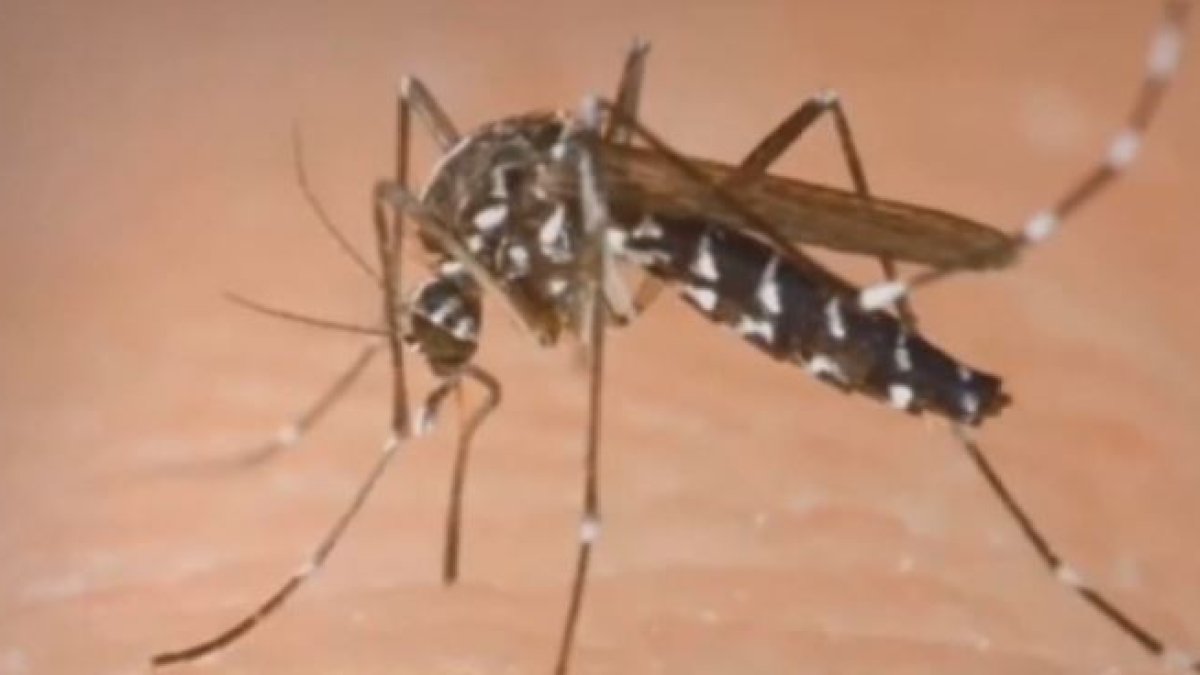The world’s deadliest animal can be squashed flat with a quick slap: It’s the mosquito.
The buzzing insects are more than annoying — they spread disease. When they bite and drink blood from a person or animal they can pick up viruses or germs too. If they can go on to bite someone or something else, they deposit the germ right under the skin.
People in some areas of Massachusetts have been warned to stay indoors when mosquitoes are most active after a rare case of mosquito-borne eastern equine encephalitis, or EEE or EEEV, was discovered. Tuesday, the Illinois Department of Public Health reported its first death associated with the West Nile Virus in an 80-year-old woman from Lake County.
Wisconsin also reported cases of West Nile, with one leading to hospitalization and another leading to death.
Earlier this month, Dr. Anthony Fauci, the former top U.S. infectious disease expert, was recently hospitalized after he came down with West Nile virus.
Both are nasty diseases spread by mosquitoes — though thankfully they are relatively rare. According to a spokesperson from the IDPH, the state has not a had a case of EEE in “decades.”
The best way to avoid getting sick is of course to avoid getting bitten, which means taking steps like using repellent, wearing clothing with long sleeves and long pants and staying indoors when the mosquitoes are out. Local health departments also work to reduce mosquito numbers, including spraying neighborhoods with insecticide. Authorities in Massachusetts are using trucks and planes this week to spray vulnerable areas.
Here’s a look at some common — and not so common — mosquito-borne diseases.
Eastern equine encephalitis
According to the IDPH, EEEV is transmitted from mosquitos to humans. Horses can also acquire the virus from mosquitos, the IDPH said, and many cases in horses are fatal.
“The primary transmission cycle takes place in and around swampy areas where human populations tend to be limited,” the IDPH said. “The main route of transmission is between mosquitoes and birds.”
Most people infected with eastern equine encephalitis don’t develop symptoms, but some can come down with fever or swelling of the brain and about one third of people infected die. There have been three cases of eastern equine encephalitis in the U.S. this year, according to the U.S. Centers for Disease Control and Prevention, one each in Massachusetts, New Jersey, and Vermont. The worst year for the disease was 2019, with 38 cases. It is caused by a virus and is not very common around the world. The virus typically spreads in certain swamps, including red maple and white cedar swamps in Massachusetts.
West Nile virus
About 2 in 10 people infected with West Nile virus develop symptoms, which can include fever and swelling of the brain. About 1 in 10 people who develop severe symptoms die. There have been 216 West Nile cases so far this year. West Nile virus was first reported in the U.S. in 1999 in New York. It gradually spread across the country. In 2003, there were nearly 10,000 cases.
Currently, Illinois has reported one death to due to the virus. Of the nine other human cases in 2024 to date, the majority were reported from Cook County, with others in in DuPage, Will, Winnebago and Tazewell counties, the IDPH said.
Malaria
Malaria infected nearly 250 million people globally in 2022 and killed more than 600,000, mostly children. It is caused by a parasite carried by mosquitoes and mainly infects people in tropical regions, especially Africa. A vaccination campaign has been launched in recent months that health officials hope will help reduce cases and deaths.
Dengue
Also known as “break-bone fever” because it can be so painful, dengue is becoming more common. The World Health Organization says that about half the world’s population is at risk of getting the disease, and there are 100 million to 400 million infections every year. Not everyone gets symptoms, which can include fever, severe headaches and pain in the muscles and joints. Most U.S. cases are in people who have traveled to other countries, though the CDC says there have been about 2,600 locally acquired cases so far this year.
How to prevent mosquito-borne illnesses
According to the IDPH, the best way to prevent EEE or any mosquito-borne illness is to reduce the number of mosquitoes around your home. IDPH offered the following suggestions
- Avoid being outdoors when mosquitoes are most active, especially between dusk and dawn.
- When outdoors, wear shoes and socks, long pants and a long-sleeved shirt, and apply insect repellent that includes DEET, picaridin, or oil of lemon eucalyptus according to label instructions. Consult a physician before using repellents on infants.
- Make sure doors and windows have tight-fitting screens. Repair or replace screens that have tears or other openings. Try to keep doors and windows shut, especially at night.
- Eliminate all sources of standing water that can support mosquito breeding, including water in birdbaths, ponds, flowerpots, wading pools, old tires and any other receptacles. In communities where there are organized mosquito control programs, contact your municipal government to report areas of stagnant water in roadside ditches, flooded yards and similar locations that may produce mosquitoes.
